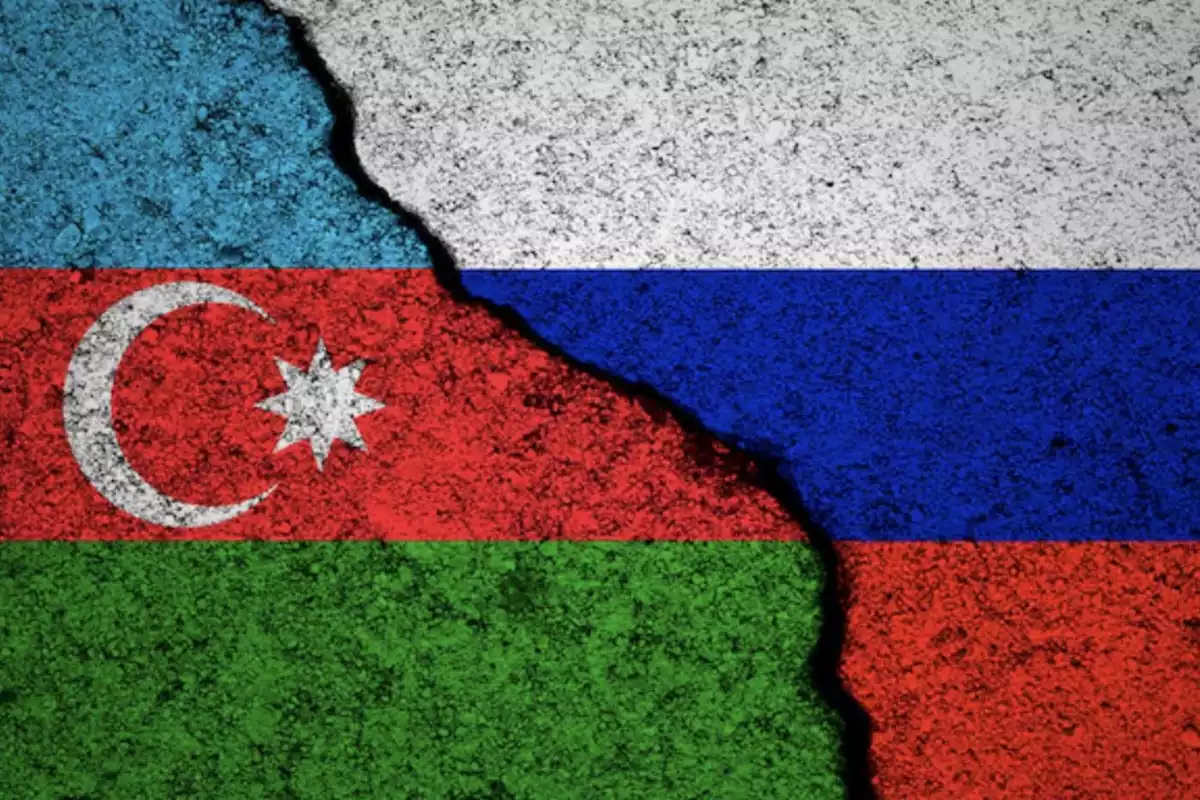
Photo: Freepik
The Caspian Post presents the following article from News.Az. featuring expert opinions.
Amid escalating tensions between Russia and Azerbaijan, critical questions arise about the future trajectory of their bilateral relationship. The ongoing diplomatic crisis underscores the urgency of Moscow’s response, particularly regarding its handling of the incident last December, when an Azerbaijani passenger aircraft was shot down in Russian airspace. Without official acknowledgment, apologies, and appropriate compensation, the rift between the two countries risks deepening.
The unresolved dispute has already led to diplomatic strain, with Azerbaijan insisting on accountability and reparations. The longer Moscow delays addressing these concerns, the greater the likelihood of further deterioration in relations. At stake are not only bilateral ties but also broader regional stability, given Azerbaijan’s growing strategic partnerships and Russia’s waning influence in the South Caucasus.
To gain insight into the current crisis, News.Az spoke with political analyst Tural Ismailov, who outlined Azerbaijan’s position on the matter.
Political analyst Tural Ismailov
Ismailov was unequivocal in his assessment, attributing the cooling of relations to Moscow’s failure to take responsibility for the downed plane. “Azerbaijan expected an official apology and compensation for the incident,” he stated. Instead, he noted, Russia launched a disinformation campaign against Azerbaijan, with figures from the ruling United Russia party making unfounded accusations against Baku.
“This approach casts doubt on the possibility of meaningful reconciliation,” Ismailov continued. “Azerbaijan has pursued a fair and principled foreign policy with all its neighbors, including Russia, yet Moscow’s reluctance to address legitimate grievances only erodes trust further.”
As for the future of relations, Ismailov emphasized that the onus lies with Russia. “Since Azerbaijan is not responsible for this diplomatic rupture, any steps toward resolution must begin with Russia’s corrective actions. Until Moscow acknowledges its responsibility, positive developments will remain unlikely.”
While Azerbaijan continues to navigate this diplomatic impasse, its relationship with Türkiye remains robust. “Unlike Armenia, which has engaged in projects aligned with Western interests, Azerbaijan has consistently maintained an independent and balanced foreign policy,” Ismailov noted. “The Shusha Declaration has further solidified Azerbaijan-Türkiye relations, elevating them to an unprecedented level.”
This strengthened partnership reinforces Azerbaijan’s ability to withstand diplomatic pressures from Moscow. “The crisis with Russia will not negatively impact Azerbaijan,” Ismailov asserted. “Our country remains committed to a rational and sovereign foreign policy.”
According to Ismailov, any path to resolution must go beyond an apology and compensation. “Moscow must also halt the disinformation campaigns targeting Azerbaijan. Otherwise, relations will continue to deteriorate.”
News.Az also spoke with Ilyas Huseynov, a political analyst, who echoed Ismailov’s concerns. Huseynov traced the crisis back to Russia’s mishandling of the Embraer plane’s downing over the Chechen Republic. While Russian President Vladimir Putin reached out to Azerbaijani President Ilham Aliyev, the lack of meaningful follow-through has left grievances unresolved.

Political analyst Ilyas Huseynov
“No compensation has been provided for the tragic loss of passengers and crew,” Huseynov emphasized. “Instead, Russian media outlets have intensified negative coverage of Azerbaijan, exacerbating tensions.”
Additionally, Huseynov pointed to the influence of pro-Armenian factions within Russia’s political and media circles. “These groups actively work against improved Azerbaijan-Russia relations, using their platforms to stoke division. Their interests are not aligned with fostering regional stability.”

Azerbaijani President Ilham Aliyev and Russian President Vladimir Putin at press conference after signed the Decleration of Alliance in Moscow, Russia. 22 February, 2022/ photo credit:kremlin.ru
Huseynov underscored that both countries must adhere to the principles of the 2022 Alliance Declaration, signed on February 22, 2022. “Moscow must respect the framework of our strategic agreements and fulfill its obligations. Without this, relations will remain strained.”
Moreover, he warned against coercive tactics. “Speaking to Azerbaijan in the language of threats is counterproductive. Russia must cease spreading disinformation and work toward restoring diplomatic trust.”
The ongoing dispute between Russia and Azerbaijan has far-reaching implications, not only for the two nations but also for the geopolitical balance in the region. With Azerbaijan strengthening its ties with Türkiye and maintaining a strategic, independent foreign policy, Moscow risks further alienating a key regional player.
As the crisis unfolds, the key question remains: will Russia take the necessary steps to mend its fractured relationship with Azerbaijan? Without substantive diplomatic efforts, Moscow’s standing in the South Caucasus could continue to erode, pushing Baku to further deepen its alliances elsewhere. The path to reconciliation is clear, but whether Russia chooses to take it remains an open question.
Share on social media